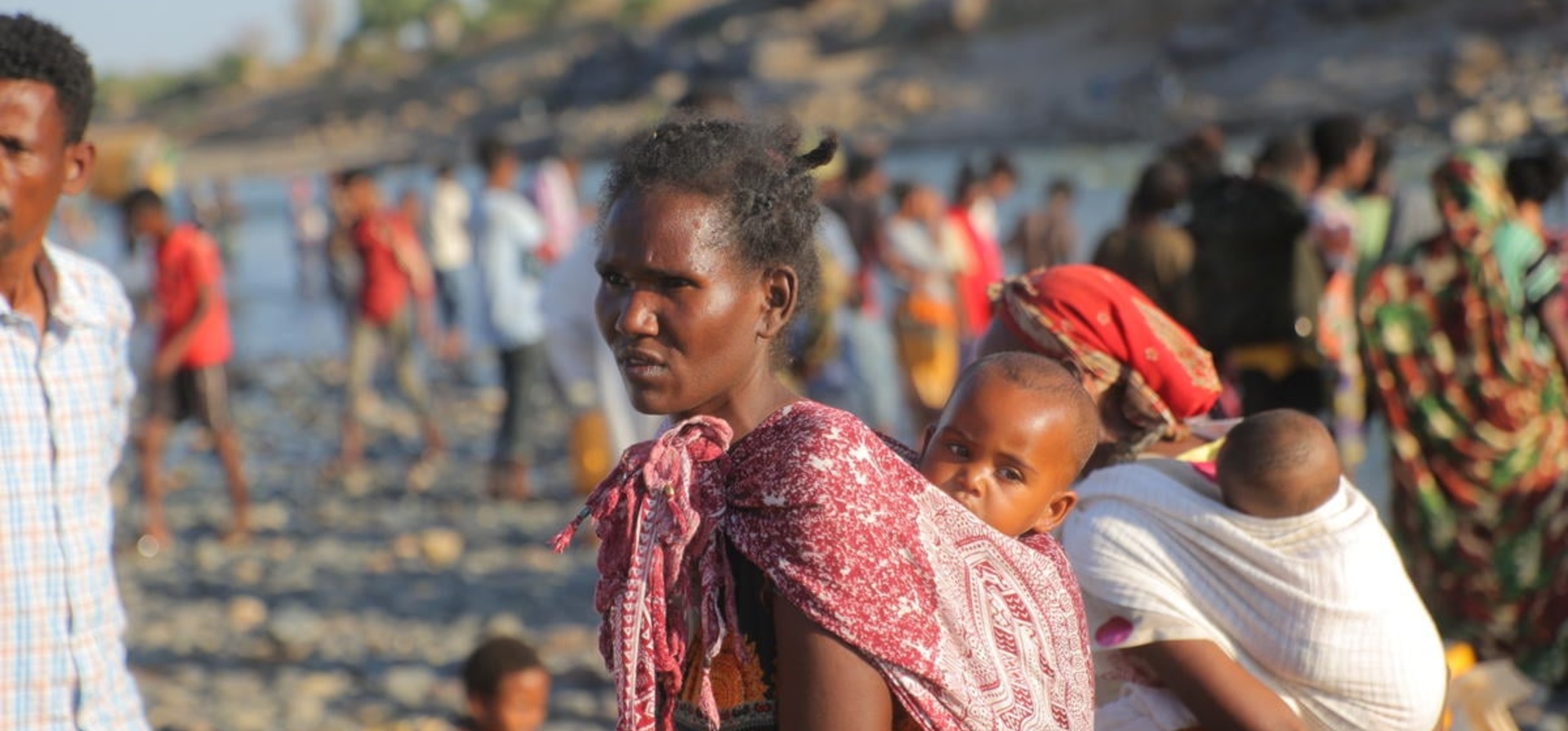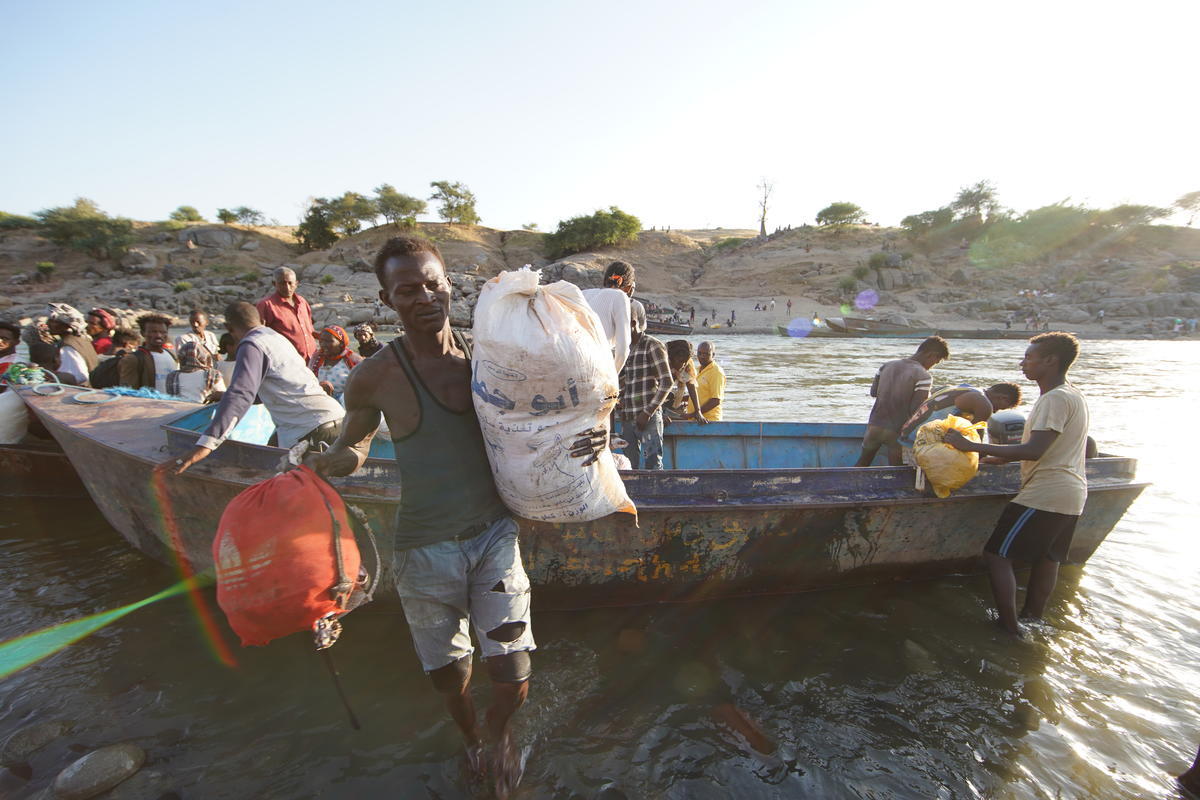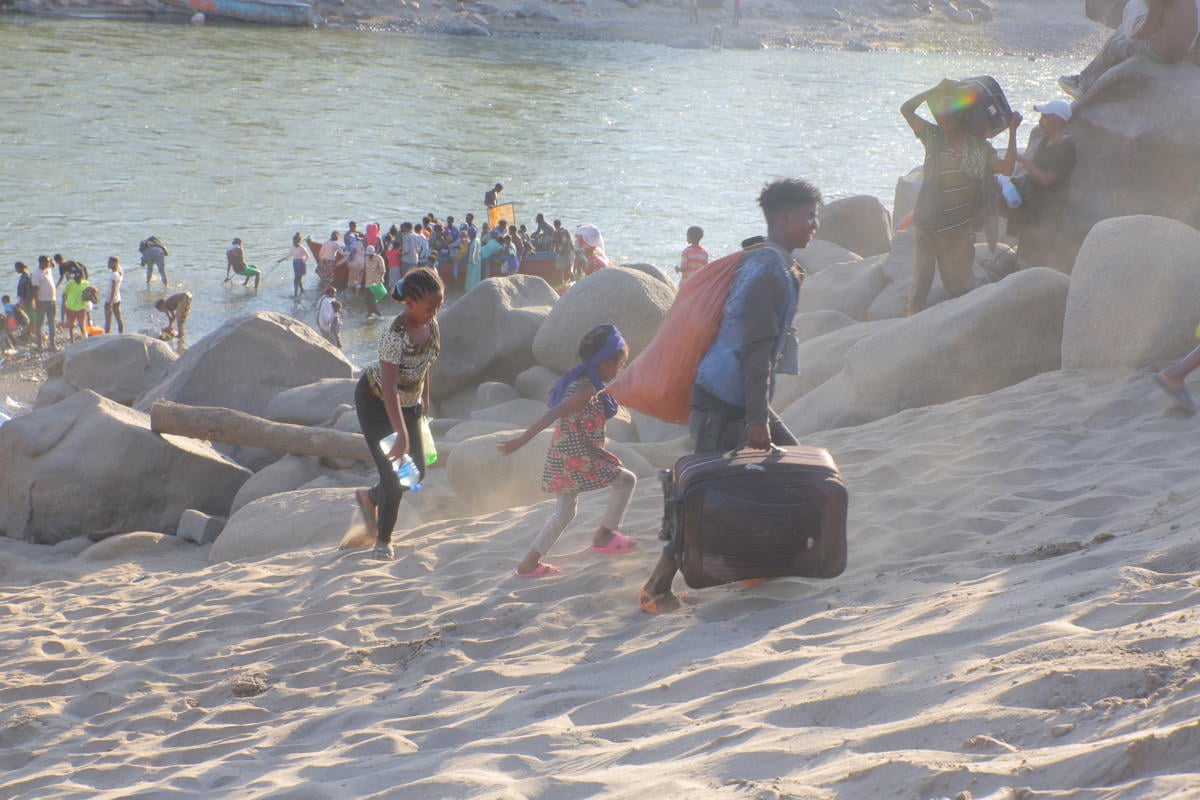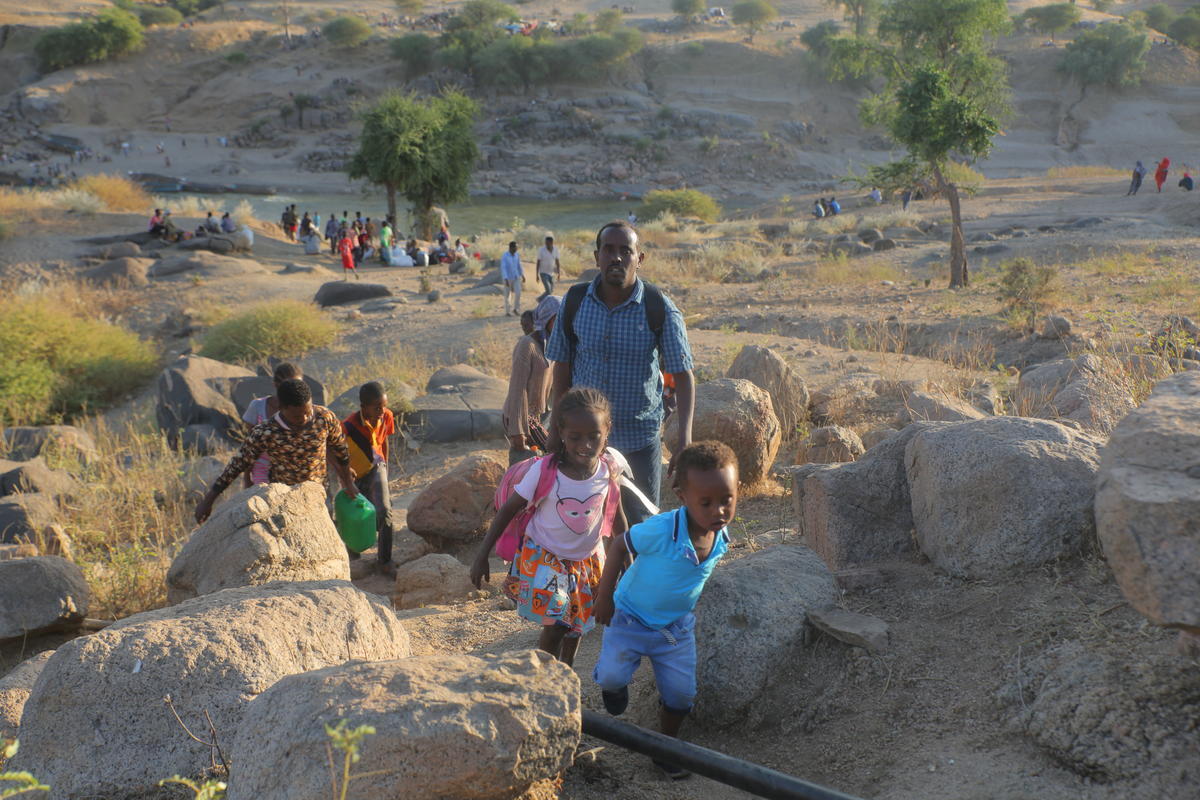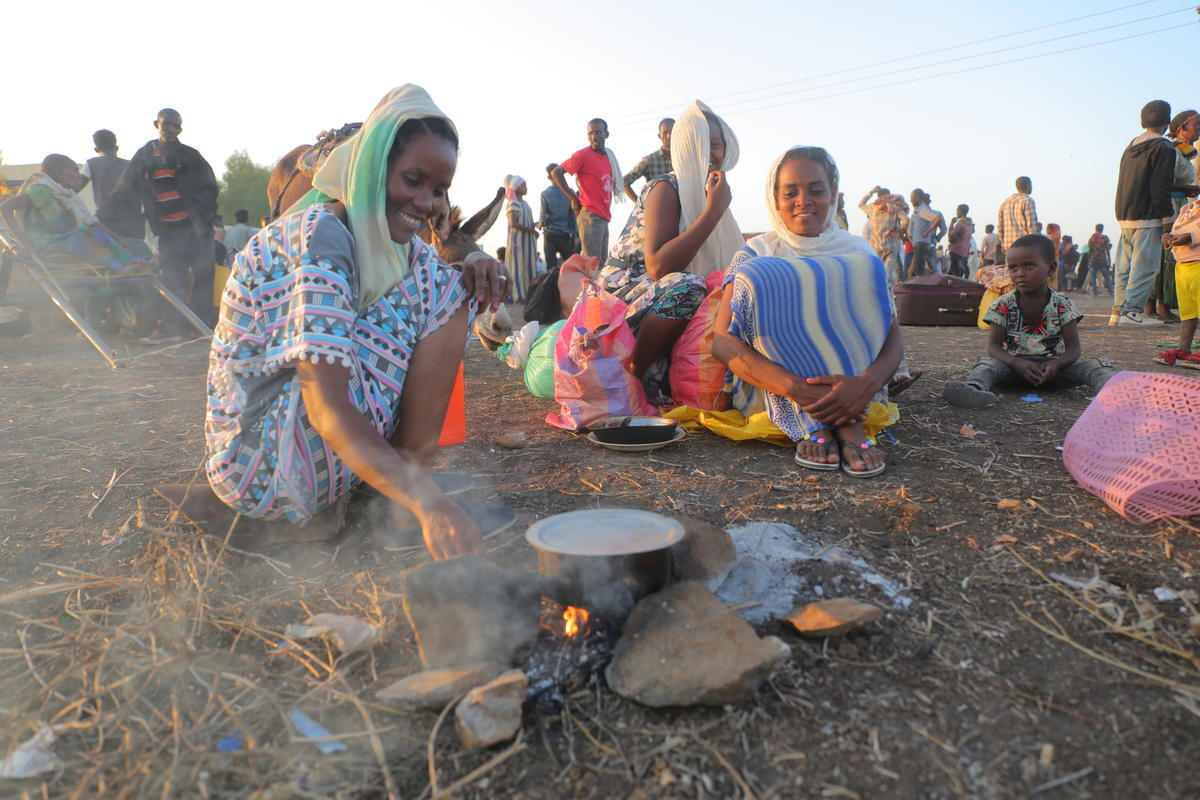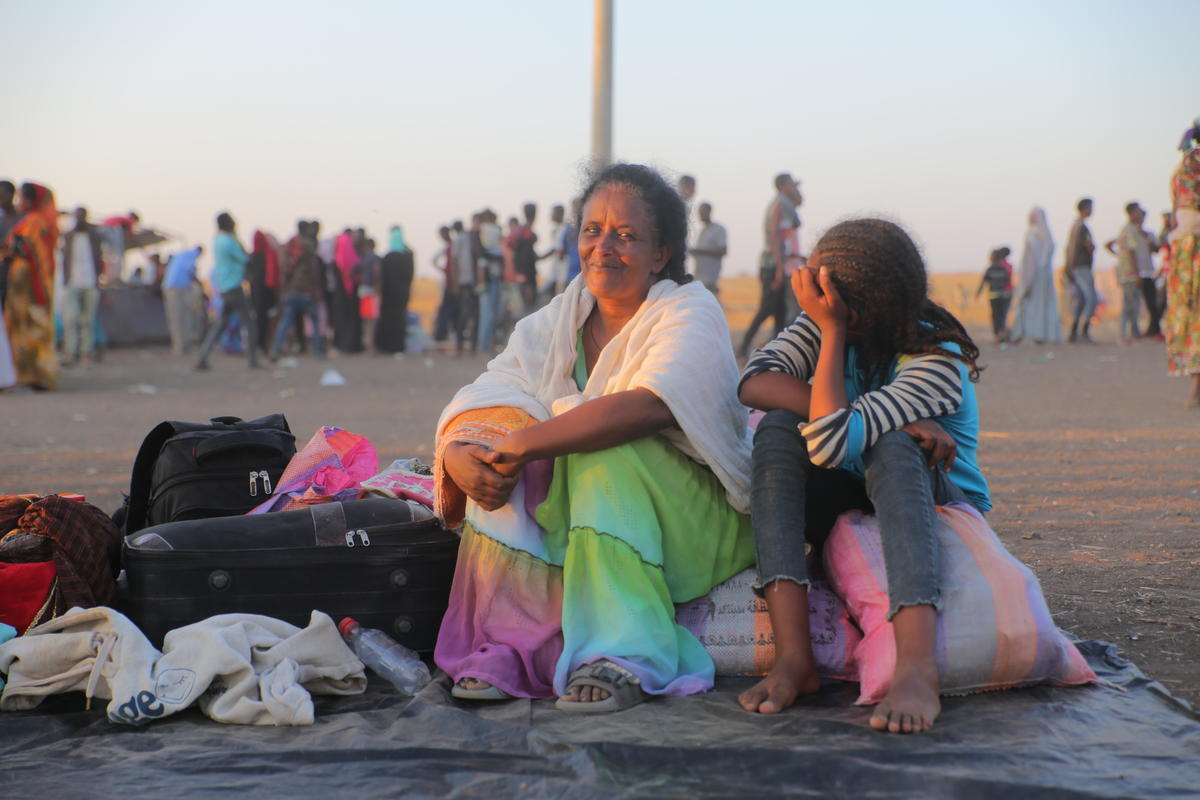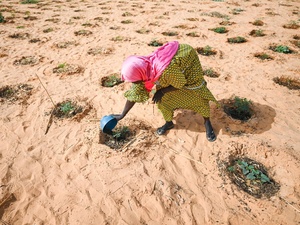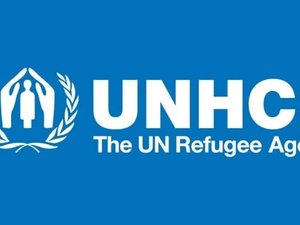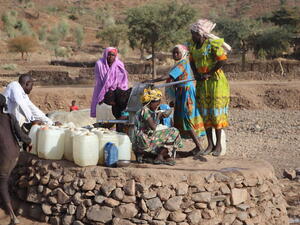Aid urgently needed for Ethiopians streaming into Sudan
When gunfire erupted, Gannite tried to make sense of the scene unfolding in her village in northern Ethiopia.
“We did not know what was going on when we heard the gun shots,” she recalls. “Many people were killed – we could see 10, twenty bodies lying on the ground. That’s when we decided to leave.”
With no time to pack a bag, she set off on a gruelling three-day trek to neighbouring Sudan in a desperate search for safety.
“I walked until my legs were injured and bleeding,” she adds, days after reaching the Sudanese border town of Hamdayet. “I thank God that we are safe here and we have something to eat.”
Violence in northern Ethiopia’s Tigray region has driven more than 27,000 Ethiopians like Gannite to flee into neighbouring Sudan in the past week. More than half of them are women and children. Many left with barely any belongings, and arrived exhausted from walking long distances over harsh terrain.
"Many people were killed – we could see 10, twenty bodies lying on the ground."
“I came here with my children five days ago. I have not seen my husband yet,” says Abeet, who fled with her children by cart, to a nearby village. “It took us three days to find safety,” she adds.
UNHCR, the UN Refugee Agency, is sounding the alarm over the growing humanitarian crisis in the region, triggered by the still ongoing fighting between the Ethiopian federal government and Tigray forces that broke out in early November.
The Ethiopian government has announced a six-month state of emergency in Tigray where the lack of electricity, telecommunications and access to fuel and cash continue to severely hamper any humanitarian response.
The majority of those fleeing into Sudan have crossed through Hamdayet border point in Kassala State and others at Lugdi in Gedaref State. The border area is remote – at least a six hour drive from the nearest big town – making it difficult to quickly deliver food and supplies.
UNHCR is working with partners, including Sudan's Commissioner of Refugees, WFP, UNICEF, Muslim Aid and the Sudanese Red Crescent Society to provide temporary shelter, food, potable water and health screening for new arrivals. Relief items are also being distributed including blankets, sleeping mats and plastic sheeting.
Information campaigns on COVID-19 prevention have started with soap and 50,000 face masks sent from the capital, Khartoum, for distribution at entry points in Kassala and Gedaref. But the sheer numbers of new arrivals are hampering aid efforts.
The transit center at Hamdayet, with a capacity for just 300 refugees is extremely overstretched, with over 12,000 people currently sheltering there. Sanitation facilities are insufficient, with concerns over hygiene.
Local hosting communities are already feeling the strain..
“This situation is really challenging because we have very limited resources. We are struggling to respond to everyone’s needs,” explains Salah Al Dine Ramadn, a Sudanese community leader in Hamdayet.
Ramadn is concerned by the growing numbers arriving in Kassala, noting that there are too few shelters, no electricity and only limited health services.
“We are asking the local government and aid agencies to come and help us because we expect the numbers will grow bigger,” he says.
UNHCR expects that the influx will continue to grow and is working on a contingency plan for 50,000 people.
Since Saturday, 2,500 people have been relocated to Um Raquba settlement site, about 80 kilometres from the border and there is a critical need to identify more sites.
In the meantime, Azeeb hopes to be reunited with her husband and is praying for the violence to end.
“The whole world is seeing how we are suffering. It is not right to kill people this way."
“The whole world is seeing how we are suffering. It is not right to kill people this way,” she says. “We are praying to God to restore sanity in our country.”
Across the border in northern Ethiopia, reports suggest that the number of civilians displaced by the conflict is growing by the day.
But a lack of access, coupled with the inability to move supplies into the region, remain major impediments for aid organizations trying to reach those in need. UNHCR and its partners are on standby to provide assistance to the displaced, including basic items, when access and security allow.
The ongoing conflict is also raising concern for the Eritrean refugee population of nearly some 96,000 in Tigray, most living in camps and reliant on humanitarian assistance that has already been disrupted.
One camp, Shimelba, is in close proximity to conflict, with UNHCR and partners currently unable to access the camp due to security concerns. Potential for further displacement inside the country is increasingly a real possibility.
While major movements from refugee camps have not yet been seen, there are reported movements of refugees westwards from Shimelba to Hitsats camp. However, the ability to monitor or to provide services will be compromised if access and security do not improve.


